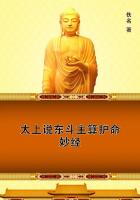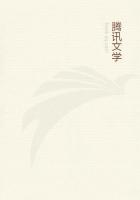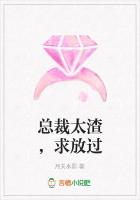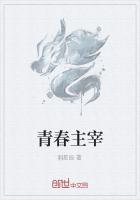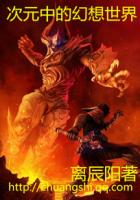"Down with Washington!" - "Hurrah for France and the Republic!" I couldn't make sense of it. I wanted to get out from that crunch of swords and petticoats and sit in a field. One of the gentlemen said to me, "Is that a genuine cap o' Liberty you're wearing?" 'Twas Aunt Cecile's red one, and pretty near wore out. "Oh yes!" I says, "straight from France." "I'll give you a shilling for it," he says, and with that money in my hand and my fiddle under my arm I squeezed past the entry-port and went ashore. It was like a dream - meadows, trees, flowers, birds, houses, and people all different! I sat me down in a meadow and fiddled a bit, and then I went in and out the streets, looking and smelling and touching, like a little dog at a fair. Fine folk was setting on the white stone doorsteps of their houses, and a girl threw me a handful of laylock sprays, and when I said "Merci" without thinking, she said she loved the French. They all was the fashion in the city. I saw more tricolour flags in Philadelphia than ever I'd seen in Boulogne, and every one was shouting for war with England. A crowd o' folk was cheering after our French Ambassador - that same Monsieur Genet which we'd left at Charleston. He was a-horseback behaving as if the place belonged to him - and commanding all and sundry to fight the British. But I'd heard that before. I got into a long straight street as wide as the Broyle, where gentlemen was racing horses. I'm fond o' horses.
Nobody hindered 'em, and a man told me it was called Race Street o' purpose for that. Then I followed some black niggers, which I'd never seen close before; but I left them to run after a great, proud, copper-faced man with feathers in his hair and a red blanket trailing behind him. A man told me he was a real Red Indian called Red Jacket, and I followed him into an alley-way off Race Street by Second Street, where there was a fiddle playing.
I'm fond o' fiddling. The Indian stopped at a baker's shop -
Conrad Gerhard's it was - and bought some sugary cakes. Hearing what the price was I was going to have some too, but the Indian asked me in English if I was hungry. "Oh yes!" I says. I must have looked a sore scrattel. He opens a door on to a staircase and leads the way up. We walked into a dirty little room full of flutes and fiddles and a fat man fiddling by the window, in a smell of cheese and medicines fit to knock you down. I was knocked down too, for the fat man jumped up and hit me a smack in the face. I fell against an old spinet covered with pill-boxes and the pills rolled about the floor. The Indian never moved an eyelid.
'"Pick up the pills! Pick up the pills!" the fat man screeches.
'I started picking 'em up - hundreds of 'em - meaning to run out under the Indian's arm, but I came on giddy all over and I sat down. The fat man went back to his fiddling.
'"Toby!" says the Indian after quite a while. "I brought the boy to be fed, not hit."
'"What?" says Toby, "I thought it was Gert Schwankfelder."
He put down his fiddle and took a good look at me. "Himmel!" he says. "I have hit the wrong boy. It is not the new boy. Why are you not the new boy? Why are you not Gert Schwankfelder?"
'"I don't know," I said. "The gentleman in the pink blanket brought me."
'Says the Indian, "He is hungry, Toby. Christians always feed the hungry. So I bring him."
'"You should have said that first," said Toby. He pushed plates at me and the Indian put bread and pork on them, and a glass of Madeira wine. I told him I was off the French ship, which I had joined on account of my mother being French. That was true enough when you think of it, and besides I saw that the French was all the fashion in Philadelphia. Toby and the Indian whispered and I went on picking up the pills.
'"You like pills - eh?" says Toby.
'"No," I says. "I've seen our ship's doctor roll too many of em.'
'"Ho!" he says, and he shoves two bottles at me. "What's those?"
'"Calomel," I says. "And t'other's senna.
'"Right," he says. "One week have I tried to teach Gert Schwankfelder the difference between them, yet he cannot tell.
You like to fiddle?" he says. He'd just seen my kit on the floor.
'"Oh yes!" says I, '"Oho!" he says. "What note is this?" drawing his bow across.
'He meant it for A, so I told him it was.
'"My brother," he says to the Indian. "I think this is the hand of Providence! I warned that Gert if he went to play upon the wharves any more he would hear from me. Now look at this boy and say what you think."
'The Indian looked me over whole minutes - there was a musical clock on the wall and dolls came out and hopped while the hour struck. He looked me over all the while they did it.
'"Good," he says at last. "This boy is good."
'"Good, then," says Toby. "Now I shall play my fiddle and you shall sing your hymn, brother. Boy, go down to the bakery and tell them you are young Gert Schwankfelder that was. The horses are in Davy jones's locker. If you ask any questions you shall hear from me."
'I left 'em singing hymns and I went down to old Conrad Gerhard. He wasn't at all surprised when I told him I was young Gert Schwankfelder that was. He knew Toby. His wife she walked me into the back-yard without a word, and she washed me and she cut my hair to the edge of a basin, and she put me to bed, and oh! how I slept - how I slept in that little room behind the oven looking on the flower garden! I didn't know Toby went to the Embuscade that night and bought me off Dr Karaguen for twelve dollars and a dozen bottles of Seneca Oil. Karaguen wanted a new lace to his coat, and he reckoned I hadn't long to live; so he put me down as "discharged sick."
'I like Toby,' said Una.
'Who was he?' said Puck.
'Apothecary Tobias Hirte,' Pharaoh replied. 'One Hundred and Eighteen, Second Street - the famous Seneca Oil man, that lived half of every year among the Indians. But let me tell my tale my own way, same as his brown mare used to go to Lebanon.'
'Then why did he keep her in Davy Jones's locker?' Dan asked.

